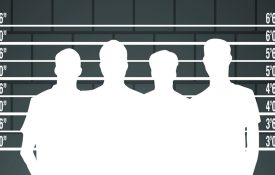-
A Conversation With Lee Anna Clark
The APS Fellow and personality researcher talks about the scientific and practical challenges of classifying mental disorders — the subject of an article she has co-authored for Psychological Science in the Public Interest.
-

Eyewitness Confidence Can Predict Accuracy of Identifications, Researchers Find
A new report challenges the perception that eyewitness memory is inherently fallible, finding that eyewitness confidence can indicate the accuracy of identifications made under “pristine” conditions.
-
Eyewitness Confidence Can Predict Accuracy of Identifications, Researchers Find
Many individuals have been falsely accused of a crime based, at least in part, on confident eyewitness identifications, a fact that has bred distrust of eyewitness confidence in the US legal system. But a new
-

Justice Department Turns to Psychological Science to Improve Eyewitness Testimony
The US Department of Justice (DOJ) is tapping into psychological science to develop new guidelines for eyewitness identification procedures.
-

Justice Department Turns to Psychological Science to Improve Eyewitness Identifications
The US Department of Justice draws on psychological research to identify best practices in eyewitness identification procedures.
-
Brain training – why it’s no walk in the park
The Conversation: You’ve probably heard of “brain training exercises” – puzzles, tasks and drills which claim to keep you mentally agile. Maybe, especially if you’re an older person, you’ve even bought the book, or the

